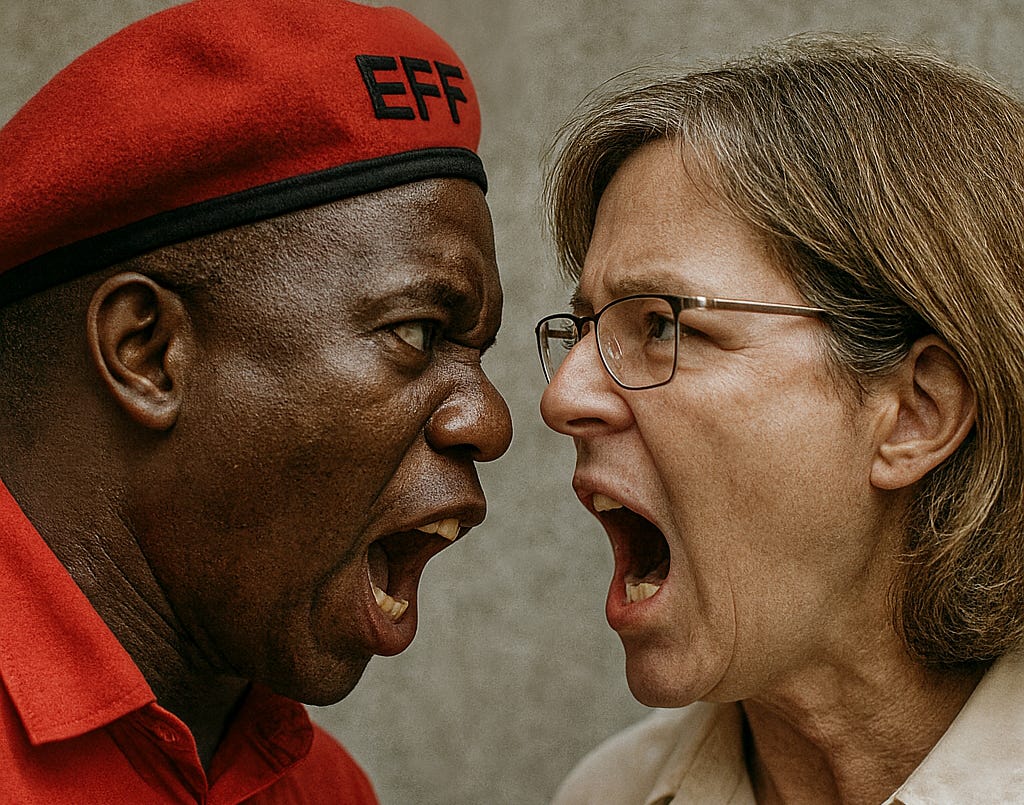The Right To Offend And More
Whether it is a politician singing a song or a middle-aged woman hurling racial slurs, if no rights are being violated or infringed upon, that person should not face any legal sanctions or scrutiny.
Freedom of expression is a fundamental human right. South Africa boasts one of the strongest free speech cultures in Africa and ranks highly worldwide. But while our culture of free expression is commendable, there is still work to be done.
The Constitution enshrines the right to free expression in Section 16(1). However, this right is limited by Section 16(2), which prohibits expression that amounts to propaganda for war, incitement of imminent violence, or the advocacy of hatred based on race, ethnicity, or gender, when such expression constitutes incitement to cause harm.
This section is the foundation upon which South Africa's vibrant media landscape is built. Unlike in many other African countries to the north, our journalists generally do not have to fear imprisonment for writing articles that critique political leaders. This is a testament to the commitment of the South African government and society at large to upholding the values of free expression enshrined in the constitution.
I would argue that this culture of free expression is hindered by attempts to politicise the enforcement of laws concerning forms of expression that are not protected under free speech. The inconsistent sanctioning of expressions deemed to incite harm or discrimination based on race, ethnicity, or gender undermines this principle.
The legal language of the most recent ruling regarding the ‘shoot the Boer’ case is beyond the scope of this piece, unfortunately. Suffice it to say that the most authoritative judgment on the matter, issued by the Supreme Court of Appeal, currently permits the singing of the song in the context of a political rally.
The song advocates the killing of people understood in the public sphere to refer to Afrikaans-speaking white people. On its face the lyrics would violate section 10 of the Promotion of Equality and Prevention of Unfair Discrimination Act (PEPUDA), which prohibits advocating racial hatred and causing harm.
The context of South Africa’s history is, according to the Equality Court and the Supreme Court of Appeal (SCA), a mitigating factor that makes the song and its statement permissible at a political rally. The SCA asserts that a reasonable listener would not interpret the song as a literal instruction to kill the Boer, despite the literal wording.
The context in which the song is sung is important in determining the harm it causes. The SCA is correct in stating that the song is not harmful (just as I argue that the statements made by Vicky Momberg or Penny Sparrow were not harmful). However, the courts' reasoning for deeming one set of words harmful and others not, is inconsistent.
The context of struggle songs and their significance was a central factor in the court’s reasoning in the Boer case. The court considered that a reasonable listener would interpret the song within its historical context, among other factors, leading to the conclusion that singing the song does not cause harm.
In the cases of Vicky Momberg and Penny Sparrow, the fact that both individuals had little to no power – at least compared to a politician – was not considered a strong enough factor to exonerate them. Additionally, the absence of any threats to harm the race they discriminated against was not considered; the harm was determined to arise solely from the act of discrimination itself.
This line of reasoning – where a politician can sing a song about killing the Boer and be exonerated, while individuals saying the in person or online are sanctioned – is, on its face, inconsistent. This approach colours the application of the law not with objectivity, but rather with the subjective whims of what society deems acceptable at a given time.
The fair solution to this inconsistency in the application of the law is to allow a thousand opinions, both good and bad, to flourish. The freedom to express oneself does not mean that what others express will necessarily be acceptable to you as an individual reader or to society at large.
When everyone is allowed to express themselves, society at large – or you individually – can also express disagreement with that which offends you. The ability to share one’s thoughts without attracting legal scrutiny, no matter how deplorable the expression may be, is central to a society that does not sweep its problems under the proverbial rug. I would contend that this is the kind of society to which we should aspire.
Whether it is a politician singing a song or a middle-aged woman hurling racial slurs, if no rights are being violated or infringed upon, that person should not face any legal sanctions or scrutiny.
No matter how hurtful or infuriating certain forms of expression are, they must be allowed to exist, if only as an example to the rest of society of what not to do. Lest we create an unjust society under the guise of a just one.
Zakhele Mthembu, BA Law LLB (Wits), is Policy Officer at the Free Market Foundation.


